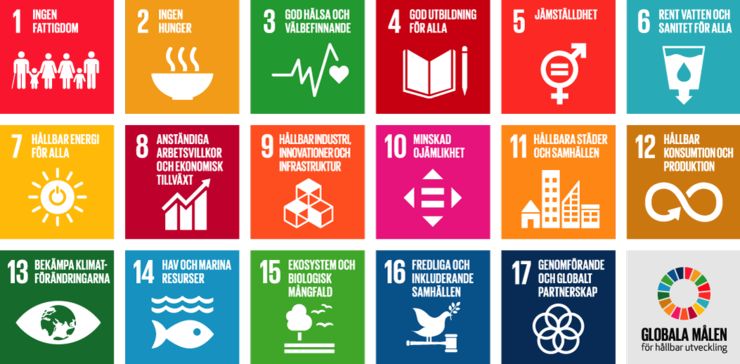The 17 Sustainable Development Goals outlined by the United Nations do not specifically mention materials. However, new materials have the potential to be the solution to many of these goals. At AFM, we work daily to develop solutions and technologies that contribute to a more sustainable world.
By developing advanced materials for energy storage and distribution, renewable energy can become more accessible and affordable for people in all communities, thus reducing energy poverty. Advanced materials can also be used in agriculture to increase productivity and reduce harmful environmental impacts, thereby helping to secure food supplies. Furthermore, materials can be used to create innovative medical devices for improved health and well-being. Through education and training, AFM can contribute to quality education, and by supporting female researchers, AFM can help reduce gender disparities in these areas.
Advanced materials can also be used to develop efficient water purification techniques and sanitation systems, improving access to clean water and sanitation. Materials used in solar cells and wind power can help increase the use of renewable energy and promote economic growth through green jobs. Through strong collaborations and investments in research on advanced materials, new job opportunities can be created and working conditions improved.
Advanced materials are crucial for building sustainable and innovative infrastructures, such as in the construction of sustainable buildings and transportation. Technological solutions using materials can contribute to increased accessibility and reduced inequality. Materials can also be used to develop smart cities with energy efficiency, better waste management, and improved quality of life. By developing materials with longer lifespans and recycling potential, sustainable consumption and production can be promoted. Materials used in climate-smart technology can reduce emissions and mitigate climate change.
Advanced materials can be used in marine technologies for the conservation of ocean and marine resources. Using materials for sustainable agricultural practices and forest management can promote the conservation of land and ecosystems. Materials can be used for monitoring and communication to improve community safety and inclusive societies. Through further collaborations with other businesses, academic institutions, and organizations, material scientists can drive innovations that can help achieve all the global sustainability goals set by the United Nations. Therefore, advanced functional materials are a critical component in contributing to solutions for all the global challenges identified by the UN's sustainability goals. The 17 Sustainable Developement Goals.
The 17 Sustainable Developement Goals.